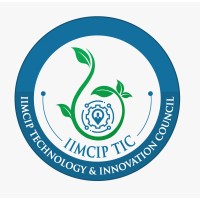Talk to Us
(+91) 9831021706
(+91) 9830161441
Email Enquiry
academy@aot.edu.in
placement@aot.edu.in
(+91) 9831021706
(+91) 9830161441
academy@aot.edu.in
placement@aot.edu.in
Sustainable Technology is a dynamic and impactful research area that is leveraging modern engineering and computational methods to tackle critical environmental and societal challenges. Researchers at AOT are developing intelligent, data-driven systems to improve efficiency and reduce harm across multiple domains. For example, machine learning models are being created to classify influent sewage water quality, allowing wastewater treatment plants to optimize energy consumption and minimize the generation of harmful by-products like CO₂ and NO₂. This not only enhances the efficiency of the treatment process but also reduces its overall environmental footprint.

Problem Description: Performance analysis of the filtration unit and the storage system with the filtration unit using Statistical and Machine Learning based predictive modeling and through Optimization using Biology inspired Optimizer algorithm. Development of a briquetting machine to manufacture briquettes from agricultural waste maintaining a proper concentration of the elements used. The optimal concentrations were obtained considering maximization of calorific value and minimization of ash content in briquette manufacturing.
Title: Parametric Optimization of Energy Characteristics of Agricultural Waste Briquettes
Students: Sk Masidur Rahaman, Pranabesh Dey, Asad Ansari, Debaditya Bal, and Sk Masudur Rahaman
Supervisor: Dr. Jhumpa De (ME Department)
Year: 2023 – 2024
Problem Description: In modern industries, precise measurement of process variables is essential for ensuring product quality, reducing operational costs, and maintaining safety standards. Sensors and transducers are key components in this process, as they convert physical variables into electrical signals for efficient monitoring and control. With the transition from analog to digital systems, microcontrollers and computers have become the core components of modern instrumentation. However, the overall accuracy of such systems still depends on the performance of the sensing elements. Therefore, the development of smart instrumentation systems requires accurate sensing and measurement of key process variables such as temperature, pressure, level, displacement and flow. These systems incorporate smart sensors with IoT capabilities to enable real-time data acquisition, display and remote monitoring. Due to their enhanced functionality and reliability, such systems have wide applications in process automation, environmental monitoring, and solid waste management.
Title: Techno-commercially Optimized Waste Management System Based on SMART Trash Bin
Sponsor: Department of Scientific and Industrial Research (DSIR) Sponsored Project, Ministry of Science & Technology, Government of India
PI: Dr. Sirshendu Saha, Department of Electrical and Electronics Engineering.
Co-PI: Dr. Hiranmoy Mandal, Department of Electrical and Electronics Engineering.
Year: 2023
Funding: 13.08 lakhs
Title: Optimization of Waste Monitoring and Controlling Using Smart Bin
Students: Arijeet Kar, Aniruddha Upadhyay, Pradipta Chakraborty, Sk Sweta, and Moupriya Sadukhan.
Supervisor: Dr. Hiranmoy Mandal (EEE Department)
Year: 2024-2025
Problem Description:
Proper waste disposal is essential for a clean, secure workplace. Wastewater treatment plays a vital role in protecting the ecosystem, but involves complex, energy-intensive processes that may emit harmful by-products like CO₂ and NO₂. Key sewage water parameters include Biochemical Oxygen Demand (BOD), ammonia, and Total Suspended Solids (TSS). This research proposes a classification model to accurately assess influent water quality, helping treatment plants optimize resource usage and improve the efficiency and sustainability of wastewater management.
Problem Description:
Accurate sensing and control are vital in both industrial and societal applications, yet conventional analog instrumentation systems often suffer from limited accuracy, low precision, poor scalability, and high susceptibility to environmental noise and signal interference. With the growing demand for real-time, remote, and reliable monitoring, there is a critical need for advanced sensor-based systems. By integrating IoT, data analytics, and automation, modern instrumentation can overcome these limitations, offering adaptive, efficient, and intelligent solutions. This shift is essential for improving performance in areas such as environmental monitoring, smart agriculture, waste management, healthcare, and industrial automation, thereby enhancing overall operational and societal outcomes.
Title: Techno-commercially Optimized Waste Management System Based on SMART Trash Bin
Sponsor: Department of Scientific and Industrial Research (DSIR) Sponsored Project, Ministry of Science & Technology, Government of India
PI: Dr. Sirshendu Saha, Department of Electrical and Electronics Engineering.
Co-PI: Dr. Hiranmoy Mandal, Department of Electrical and Electronics Engineering.
Year: 2023
Funding: 13.08 lakhs
Students: Anasuya Dey, Aman Prasad, Bahni Bikash Dutta,Amarendu Laha
Supervisor: Dr. Sirshendu Saha (EEE Department)
Year: 2021
Students: Angana Mukherjee, Abhirup Biswas, Nisha Shaw, Md. Aquib Ansari, Jeet Kr. Pal
Supervisor: Dr. Sirshendu Saha (EEE Department)
Year: 2022
Students: Rishparna Das, Nirmali Biswas, Chaiti Dutta, Ankita Chowdhury, Shreya Sarkar
Supervisor: Dr. Sirshendu Saha (EEE Department)
Year: 2023
Students: Someshwar Srimany, Suman Bhowmick, Mehnaj Chowdhury, Rajarshi Bhattacharjee, Debjit Saha
Supervisor: Dr. Sirshendu Saha (EEE Department)
Year: 2024
Students: Abhishek Singh, Aranya Banerjee,Samayita Chatterjee,Hriju Das, Nikita Das
Supervisor: Dr. Sirshendu Saha (EEE Department)
Year: 2025








G.T.Road (Adisaptagram), Aedconagar
Hooghly-712121 West Bengal, India
(+91) 9831021706
(+91) 9830161441
academy@aot.edu.in
placement@aot.edu.in
Total Visitors: 49,69,313
Academy of Technology. All Rights Reserved